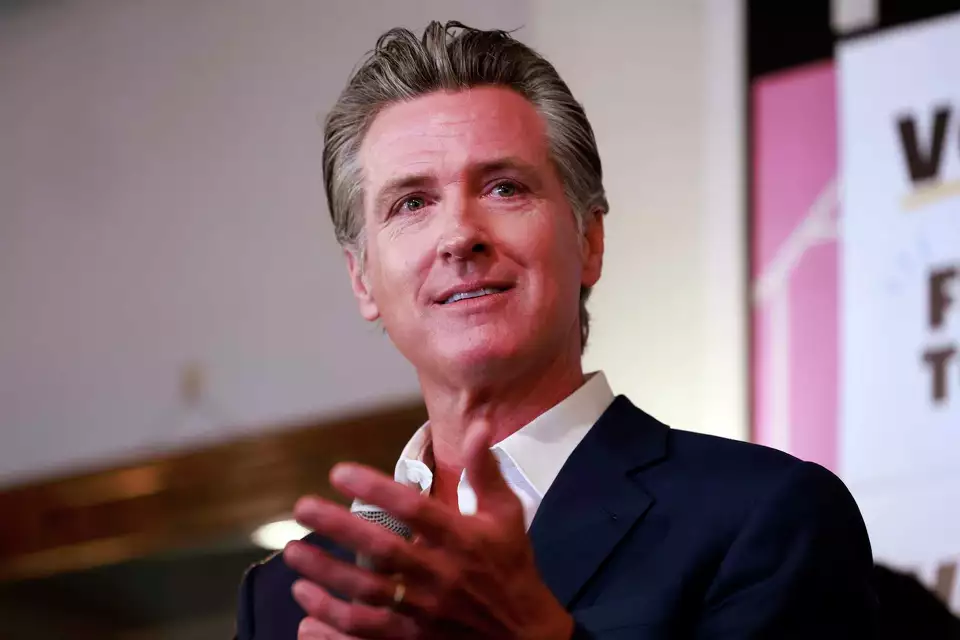By Emily Hoeven July 1, 2024

Gov. Gavin Newsom doesn’t want California voters to approve a November ballot measure to roll back parts of Proposition 47. Jessica Christian/The Chronicle
Gov. Gavin Newsom and Democratic legislative leaders really, really don’t want California voters to approve a November ballot measure to roll back parts of Proposition 47, the controversial 2014 initiative that reduced some theft and drug crimes from felonies to misdemeanors.
In fact, they’re so desperate to prevent the measure from succeeding that they’re willing to subvert and twist the very process they claim to revere more than anything else — democracy — to achieve their aims.
Newsom and Democratic leaders’ first attempt to keep Prop 47 reform off the ballot backfired last month. To try to force the Californians for Safer Communities Coalition — led by local district attorneys — to withdraw their initiative, legislative leaders cooked up a last-minute scheme to kill many of the bills in their own ambitious public safety package if voters approved the ballot measure. But the sketchy maneuver alienated both Democratic and Republican lawmakers, forcing Newsom and legislative leaders to backtrack on the amendments and instead go to Plan B.
That Plan B is to propose their own ballot measure to reform Prop 47 — even though Newsom, Senate President Pro Tem Mike McGuire and Assembly Speaker Robert Rivas have all repeatedly said that they oppose overhauling the initiative.
The text of this ballot measure was published late Sunday night, giving lawmakers just a few days to consider it before Wednesday’s deadline for inclusion in the official state voter guide. The initiative would, among other things, make it a felony to knowingly sell drugs laced with fentanyl without disclosing the deadly synthetic opioid’s presence to the purchaser and make it easier for prosecutors to aggregate multiple low-level thefts when charging defendants. (The district attorneys’ measure, by contrast, encompasses a wider range of offenses and could lead to tougher penalties.)
In a statement, Newsom called the measure a “balanced approach (that) cracks down on crime and protects our communities — without reverting to ineffective and costly policies of the past.” But it will likely be a tough sell in the supermajority-Democratic Legislature, where many lawmakers have expressed wariness about returning to a War on Drugs approach.
This helps explain why the proposed ballot measure calls for a “special election” to be consolidated with the Nov. 5 general election.
This “special election” would have no noticeable impact on voters; the new measure would appear on the normal general election ballot.
But framing the measure “as an act calling an election” would allow it to take effect immediately with a simple majority vote — as opposed to an urgency clause, which requires a two-thirds vote. (The urgency is necessary to ensure the measures actually end up on the November ballot after lawmakers blew past the original Thursday deadline for inclusion.)
“It leads to a legal question — can you have all these substantive changes in law and declare this a special election, and therefore that trumps everything else?” longtime Capitol lobbyist and legal expert Chris Micheli asked me, adding that he isn’t aware of any appellate court ruling on this issue.
Newsom and Democratic leaders are clearly trying to exploit this legal gray area to avoid a perilous two-thirds vote, which could sink their measure. In other words, they’re gaming election procedures for their own political aims.
And that isn’t the only way they’re stacking the ballot.
The proposed measure states that if it receives more votes than the district attorneys’ rival Prop 47 initiative, the latter will be declared “null and void,” as opposed to having both go into effect. And another Sunday night bill, which would add two general obligation bond measures to the ballot, specifies that the crime initiative will be the first to appear on the ballot — as Prop 2 — increasing its visibility for voters.
If all this seems designed to confuse voters, that may very well be the ultimate goal of Newsom and Democratic legislative leaders. They’ve been very clear that they don’t want any significant Prop 47 reforms, and research shows that when voters are confused by a ballot measure, they’re more likely to vote against it.
The end game of two initiatives to reform Prop 47 could be no Prop 47 reform at all — as we saw in San Francisco in 2022, when progressive members of the Board of Supervisors successfully sabotaged Mayor London Breed’s housing measure with a rival measure, confusing voters and causing both measures to fail.
This is not the first time Newsom and Democrats have gamed the ballot for their own gain. In 2021, Newsom signed a law moving up the date of his recall election amid arguments from political pundits that doing so could help him stay in office. Ironically, that was made possible after Democrats waived rules they wrote in 2017, when they added more steps to California’s recall process in a failed attempt to defeat the recall of Democratic state Sen. Josh Newman.
This cynical, callous changing of election procedures to advance a political agenda diminishes trust in government and the integrity of elections. And it makes Newsom’s State of the State speech last week, in which he upheld California as a bastion of democracy and freedom in a darkened and divided nation, ring hollow.
Manipulating the ballot for your political aims doesn’t further democracy. It undermines it. And it certainly doesn’t make California a model for the nation.
Reach Emily Hoeven: emily.hoeven@sfchronicle.com; Twitter: @emily_hoeven
July 1, 2024

